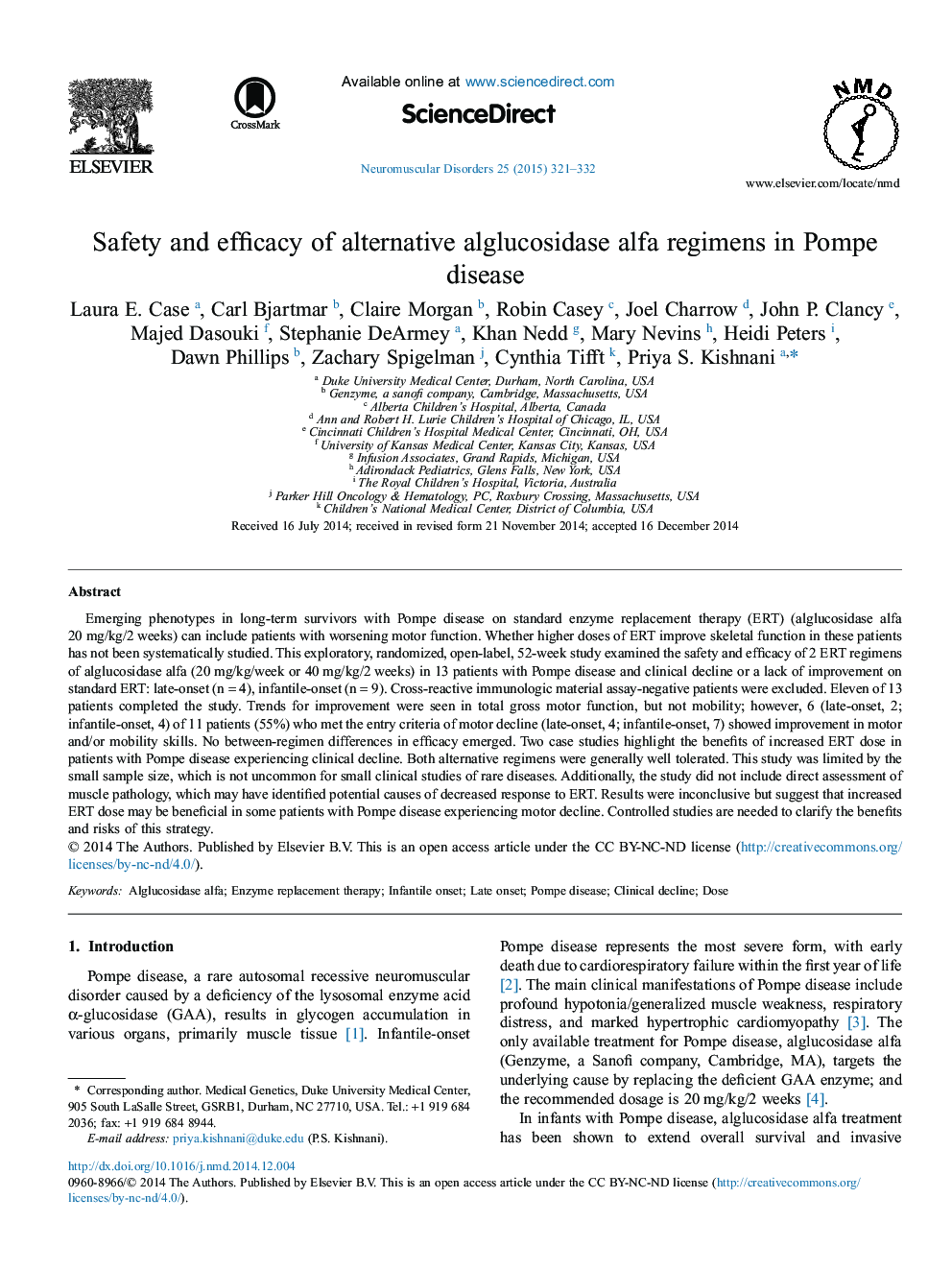| Article ID | Journal | Published Year | Pages | File Type |
|---|---|---|---|---|
| 6041411 | Neuromuscular Disorders | 2015 | 12 Pages |
Abstract
Emerging phenotypes in long-term survivors with Pompe disease on standard enzyme replacement therapy (ERT) (alglucosidase alfa 20âmg/kg/2 weeks) can include patients with worsening motor function. Whether higher doses of ERT improve skeletal function in these patients has not been systematically studied. This exploratory, randomized, open-label, 52-week study examined the safety and efficacy of 2 ERT regimens of alglucosidase alfa (20âmg/kg/week or 40âmg/kg/2 weeks) in 13 patients with Pompe disease and clinical decline or a lack of improvement on standard ERT: late-onset (nâ=â4), infantile-onset (nâ=â9). Cross-reactive immunologic material assay-negative patients were excluded. Eleven of 13 patients completed the study. Trends for improvement were seen in total gross motor function, but not mobility; however, 6 (late-onset, 2; infantile-onset, 4) of 11 patients (55%) who met the entry criteria of motor decline (late-onset, 4; infantile-onset, 7) showed improvement in motor and/or mobility skills. No between-regimen differences in efficacy emerged. Two case studies highlight the benefits of increased ERT dose in patients with Pompe disease experiencing clinical decline. Both alternative regimens were generally well tolerated. This study was limited by the small sample size, which is not uncommon for small clinical studies of rare diseases. Additionally, the study did not include direct assessment of muscle pathology, which may have identified potential causes of decreased response to ERT. Results were inconclusive but suggest that increased ERT dose may be beneficial in some patients with Pompe disease experiencing motor decline. Controlled studies are needed to clarify the benefits and risks of this strategy.
Related Topics
Life Sciences
Neuroscience
Developmental Neuroscience
Authors
Laura E. Case, Carl Bjartmar, Claire Morgan, Robin Casey, Joel Charrow, John P. Clancy, Majed Dasouki, Stephanie DeArmey, Khan Nedd, Mary Nevins, Heidi Peters, Dawn Phillips, Zachary Spigelman, Cynthia Tifft, Priya S. Kishnani,
